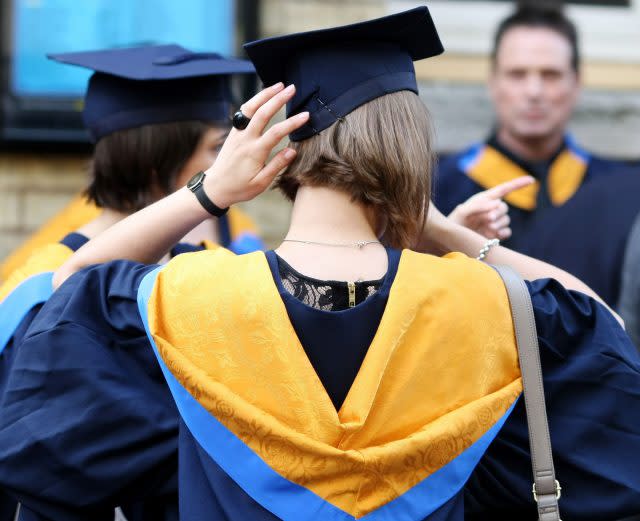Government urged to confirm university tuition fee levels

School leaders have urged the Government to confirm tuition fee levels for next year as soon as possible, as they called on universities not to automatically charge the maximum.
Ministers have yet to announce the maximum amount - which could be around £9,500 - that institutions will be allowed to charge students starting degree courses next autumn.
It means that sixth-formers are heading back to school and college this week, where they will begin preparing university applications, without knowing exactly how much they will be paying for their degree course.

For some, such as those hoping to study medicine, dentistry and veterinary science, or attend Oxford or Cambridge, the application deadline is October 15.
Geoff Barton, general secretary of the Association of School and College Leaders (ASCL), said: "With students considering university places for next year it would be helpful if the Government confirms the tuition fee cap as soon as possible.
"We encourage universities not to automatically set their fees at the maximum limit, and we advise students to think carefully about which courses best serve their needs and to consider all their options, including apprenticeships.
"We are also concerned that universities have been allowed to raise their fees but that the Government has frozen the £21,000 threshold above which graduates are required to start making loan repayments. If inflation is recognised for universities it should surely be recognised for students too."

Tuition fees for English universities trebled to a maximum of £9,000 a year in 2012, and were fixed at that level. Last year, the Government announced that fees would be allowed to rise with inflation, initially rising to £9,250 for this autumn.
The Government now has to confirm whether an inflation-linked increase will go ahead for next autumn, which could raise fees to a maximum of around £9,500. Institutions rely heavily on tuition fees as the move to treble the charges five years ago came at the same time as a cut in Government funding.
There has been a growing debate on the future of tuition fees, including questions over whether students are getting value for money, sparked by a Labour general election pledge to scrap the charges.

Ministers have insisted the current system is fair, with students receiving Government loans to cover the cost of their fees, which they begin to repay once they have graduated and are earning more than £21,000 a year.
As vice-chancellors meet this week for the annual Universities UK conference, the group's new president, Professor Janet Beer, called on ministers to re-examine parts of the funding system. She told the BBC: "We've done a poor job at explaining the good things in the system, but there are things that can be looked at again, the threshold for repayment, interest rates and maintenance grants."
A Department for Education spokesman said: "The Government announced at the 2015 summer Budget that maximum fee caps will be maintained in line with inflation from 2017/18 onwards for institutions offering high-quality teaching under the Teaching Excellence Framework.
"Changes to fee caps for the 2018/19 academic year will be confirmed by autumn 2017, before the majority of students have applied for a university place for 2018/19."


